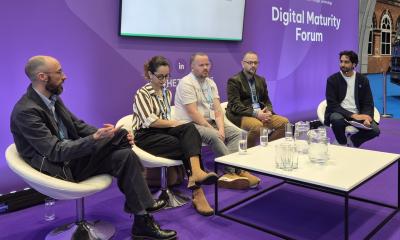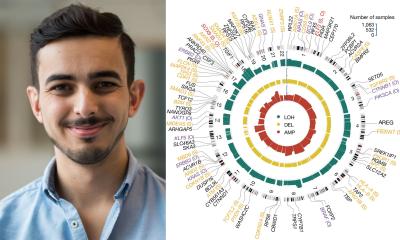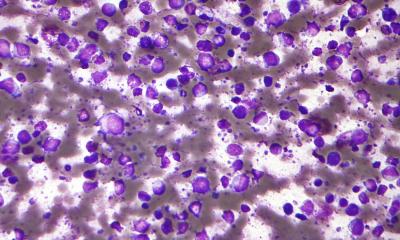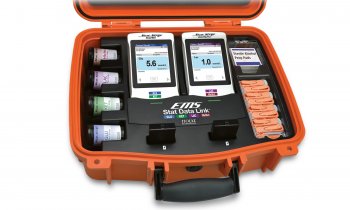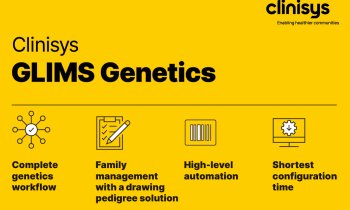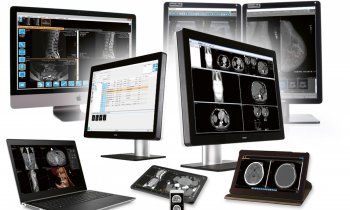News • Swedish national initiative
Precision omics to boost data-driven medicine
The national Precision Omics Initiative Sweden (PROMISE) aims to connect research with healthcare and establish Sweden as a world leader in data-driven precision medicine.
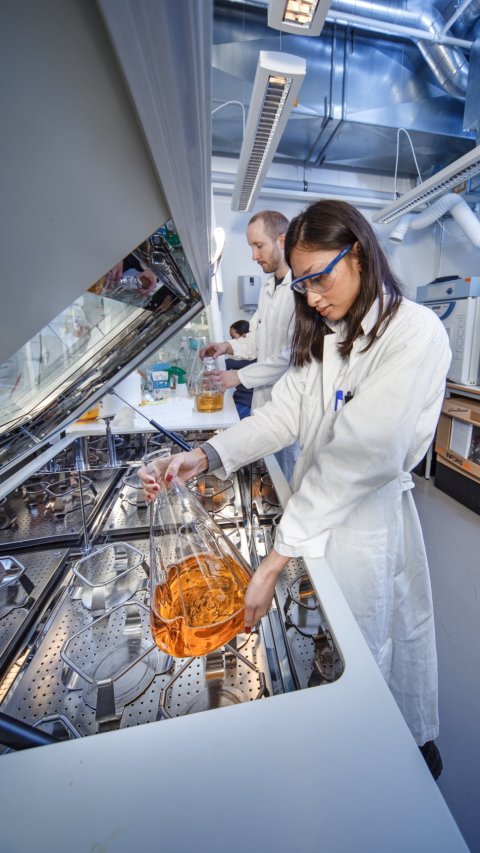
Image source: KTH; photo: Jann Lipka
The vision was recently published in the scientific journal Nature Medicine.
PROMISE has been developed by leading researchers and clinicians from universities and university hospitals across Sweden. Recent technological advancements in large-scale molecular analysis have the potential to transform both research and healthcare. “We want to make use of this major new opportunity. But this requires larger amounts of data than what we currently have in Sweden," says Tuuli Lappalainen, Professor of Genomics at KTH and Director of the National Genomics Infrastructure at SciLifeLab.
Large-scale molecular analysis offers vast opportunities in improved diagnosis and personalizing care and treatment, which is a field known as precision medicine. "We envision that PROMISE will create new clinically relevant research results that can be reported back to benefit patients. This kind of integration of research and healthcare would also be quite unique in the world," says Anders Kämpe, physician and researcher at Karolinska Institutet and Karolinska University Hospital.
According to the researchers behind PROMISE, Sweden already possesses all the necessary building blocks to conduct groundbreaking biomedical research. The country has a publicly funded healthcare system and a population that has high trust in research and is open to new technologies. Sweden is also one of the few countries where every individual can be identified using a unique personal identity number, which can be linked to extensive longitudinal registries and comprehensive electronic medical records.

Image credit: Cecilia Österholm Carbascio
Additionally, Sweden has world-leading technology platforms and analytical capacity through SciLifeLab and the Data-Driven Life Science Program. Genomic Medicine Sweden has also positioned Sweden at the forefront of the clinical implementation of precision medicine. However, this potential is far from fully utilized. PROMISE aims to leverage these existing capabilities to build bigger and deeper data sets that are needed for internationally leading research and healthcare. “We also want to work closely with industry to boost the development of new technologies and treatments. For example, data and patient groups in PROMISE could offer highly attractive opportunities for better clinical trials," Lappalainen says.
A key step isto build a large population-based research cohort of hundreds of thousands of individuals with longitudinal molecular and genomic data linked to disease and registry data, according to Richard Rosenquist Brandell, Senior Physician and Professor of Clinical Genetics at Karolinska Institutet and Director of Genomic Medicine Sweden. "We also see great potential for scientific breakthroughs in detailed molecular characterization of cancer and rare diseases, where we can increase the research use of the omics data already produced within Swedish healthcare," says Brandell.
Source: KTH Royal Institute of Technology; text: Jon Lindhe
07.04.2025



